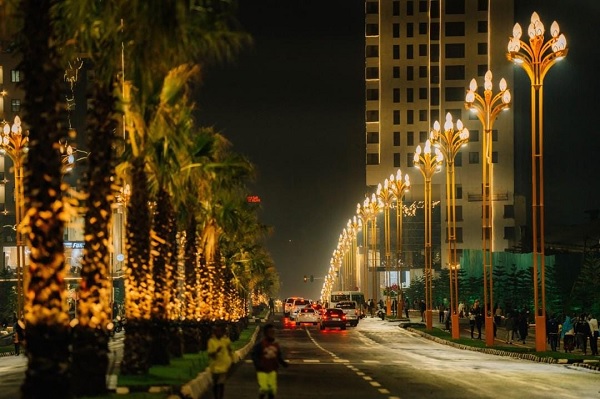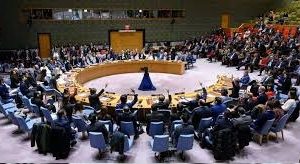
Addis Ababa, Ethiopia’s capital has become more than just the political heart of one of Africa’s most historically significant countries. Over the past few decades, it has evolved into a major global hub for diplomacy, trade, and development. Home to the African Union’s (AU) headquarters and numerous international organizations, Addis Ababa is central to Ethiopia’s growing role in global affairs. Simultaneously, the city has undergone a rapid transformation, with new infrastructure projects and urban developments that are reshaping its landscape and boosting its regional and global influence.
In recent years, Ethiopia’s increasing participation in major international conferences, combined with its ambitious corridor development projects, has further solidified its place as a pivotal player in the African continent and beyond. The ongoing urban growth of Addis Ababa, alongside its role as a key diplomatic and economic hub, reflects the country’s broader vision of modernization, integration, and regional leadership.
Addis Ababa’s status as the “diplomatic capital of Africa” is a direct result of its central role in the African Union. The city regularly hosts high-level summits and diplomatic meetings that attract political leaders from across the continent.
The most notable of these is the AU Summit, which brings together African heads of state and government to discuss critical issues like security, economic development and continental integration. The AU’s headquarters, housed in a modern complex in the city, symbolizes Africa’s aspirations for unity, peace, and sustainable development.
Accordingly, Ethiopia’s influence goes beyond the African Union. Over the years, Addis Ababa has been chosen as the venue for major international conferences on climate change, peacekeeping, and trade, drawing attention to Ethiopia’s strategic importance in global policymaking. The UN Environment Assembly (UNEA), for example, convened in Addis Ababa in 2019, where world leaders, environmentalists, and policy experts gathered to discuss global environmental issues. Such events not only elevate Ethiopia’s international profile but also underscore its growing role in global governance.
Furthermore, Addis Ababa is the seat of the United Nations Economic Commission for Africa (UNECA), an important institution that works on economic policy and development issues across the continent. Hosting these high-profile international events provides Ethiopia with a platform to advocate for African priorities, including the need for greater investment in infrastructure, climate resilience, and conflict resolution.
Lately, the city Successfully Hosts over 30 Int’l Conferences in First Quarter of Fiscal Year
Spokesperson of the Ministry, Ambassador Nebiat Getachew briefed journalists on the latest diplomatic developments, including updates on conference tourism, economic and citizen diplomacy.
Addis Ababa, the vibrant capital of Ethiopia, continues to solidify its position as a prominent hub for conference tourism, Nebiat underscored.
Ethiopia has successfully hosted more than 30 international conferences and meetings in Addis Ababa during the first quarter of this fiscal year, the Spokesperson revealed.
Among the notable events held in the city were the World Without Hunger Conference, the 46th CAF Ordinary General Assembly, and the International Inter-Religious Conference, among others, he elaborated.
Ambassador Nebiat highlighted that these conferences provide a platform for Ethiopia to showcase its potential, with Addis Ababa demonstrating its role as Africa’s diplomatic capital by hosting such high-profile international events.
ENA reported that as one of the largest contributors of troops to UN peacekeeping missions, Ethiopia’s military and political involvement in peace efforts are a testament to its dedication to regional and global peace. Addis Ababa’s role as a base for peace talks between conflicting nations has reinforced its position as a mediator and peacemaker, further elevating the city’s diplomatic importance.
This strategic role extends to Ethiopia’s involvement aiming to address conflicts on the continent, and its participation in other multilateral initiatives that seek to address the roots of conflict and build long-term peace in East Africa.
While Addis Ababa’s diplomatic and political influence is growing, the city itself is also undergoing a dramatic transformation. The city’s rapid urbanization is being driven by a young, growing population.
To accommodate this growth and provide opportunities for economic development, Ethiopia has embarked on an ambitious program of infrastructure improvement and urban development that is reshaping Addis Ababa into a modern, interconnected metropolis.
A key element of Addis Ababa’s urban development is its infrastructure expansion, particularly the construction of new corridors designed to improve connectivity. Addis Ababa is seeing significant internal infrastructure upgrades. The expansion of road networks, new gardens, renovated roads and recreational areas, new bridges, and public transport systems are designed to make Addis Ababa a more livable, sustainable city that can support its growing population and economy.
Perhaps one of the most transformative infrastructure projects currently underway in Addis Ababa is the development of its urban corridors, which are designed to integrate various sectors of the economy while enhancing the city’s connectivity. These corridors are key to unlocking new economic opportunities in the city.
For example, the Bole–Gelan corridor, Piassa- Arat kilo, and the Lideta–Kirkos corridor are being developed to improve transportation links, reduce traffic congestion, and offer space for new businesses and industries to thrive. Furthermore, the development of these corridors is critical for addressing Ethiopia’s long-term urban challenges.
As the city continues to grow, providing affordable housing and job opportunities becomes a priority. The corridor projects include provisions for residential areas, schools, hospitals, and shopping centers, helping to ensure that the benefits of urban growth are equitably distributed. The ongoing development of Addis Ababa reflects Ethiopia’s broader vision of building a more sustainable, resilient urban future that can serve as a model for other African cities.
Ethiopia’s efforts to modernize its capital city and enhance its infrastructure are not just about improving the quality of life for its citizens. They are also about positioning Addis Ababa as a bridge between Africa and the rest of the world. As the country continues to play a pivotal role in shaping the future of Africa, Addis Ababa’s transformation into a modern, interconnected city underscores Ethiopia’s ambitions to become a regional leader in trade, technology, and diplomacy.
The city’s growing role as a center for international business and trade is complemented by its status as a key site for global diplomacy. Addis Ababa is not only a hub for African affairs but increasingly a point of convergence for global organizations, multinational corporations, and civil society groups. As more international organizations and businesses look to engage with Africa, Addis Ababa stands ready to serve as the gateway to the continent.
As Ethiopia continues its journey toward modernization, Addis Ababa remains at the forefront of the country’s ambitious plans for economic growth and regional integration. The city’s evolution into a global diplomatic and economic center, coupled with the ongoing infrastructure and corridor developments, is a testament to Ethiopia’s determination to play a leading role in the 21st century. With its expanding role in global diplomacy, peace keeping, and international trade, Addis Ababa is not just the capital of Ethiopia—it is emerging as a key city on the global stage, connecting Africa to the world and driving Ethiopia’s future success.
BY DANIEL ALEMAYEHU
THE ETHIOPIAN HERALD SATURDAY 16 NOVEMBER 2024



